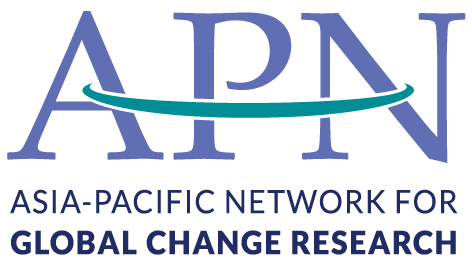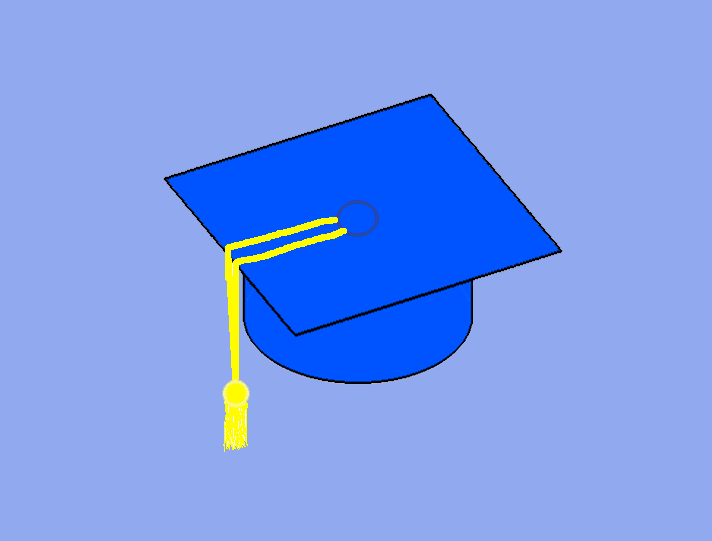Training course: “Microplastic pollution in water: monitoring, modeling and ecological risk assessment”
Date: 15 – 16th July 2024
Venue: Conference room, 1H building, 18 Hoang Quoc Viet, Cau Giay, Hanoi, VIETNAM
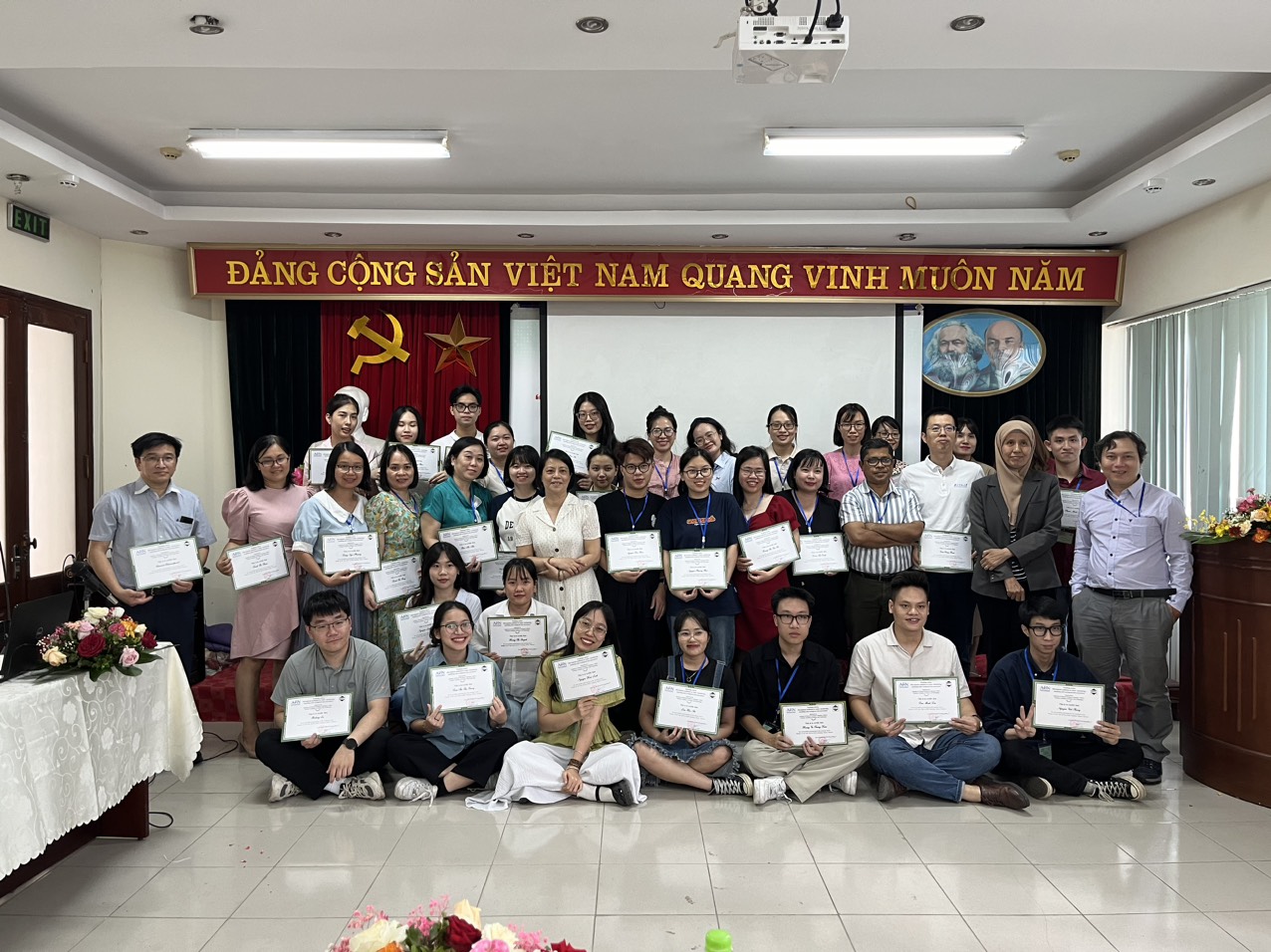
1. Tentative program
| Time | Activities |
| Monday 15th July 2024 | |
| 8h45’ - 9h00’ | Reception |
| 9h00 - 9h10’ | Opening and welcome speech Assoc Prof Dr Thi Hong Minh PHAM Director of INPC, VAST, VIETNAM |
| 9h10’ - 9h15’ | Introduction of this training course Assoc Prof Dr Thi Phuong Quynh LE INPC, VAST, VIETNAM |
| 9h15’ - 9h30’ | Group Photo/introduction of participants Coffee break |
| 9h30 - 11h45’ | Monitoring microplastics in water: sampling, analysis and data treatment Assoc Prof Siriporn PRADIT Prince of Songkla University, THAILAND |
| 11h45’ – 13h30’ | Lunch time |
| 13h30’ - 14h45’ | Ecological risk assessment of microplastics in aquatic systems Prof Dr Harunur RASHID Bangladesh Agricultural University, BANGLADESH |
| 14h’45 – 15h00’ | Coffee break |
| 15h00’ – 16h30 | Ecological risk assessment of microplastics in aquatic systems (continuous) Prof Dr Harunur RASHID Bangladesh Agricultural University, BANGLADESH |
| Tuesday 16th July 2024 | |
| 9h00-10h15’ | Some techniques for reducing plastic focus on using an electron beam Assoc Prof Dr Manh Ha BUI Sai Gon University, VIETNAM |
| 10h15’ – 10h30’ | Coffee break |
| 10h30’ – 11h45’ | Some techniques for reducing plastic focus on using an electron beam (continous) Assoc Prof Dr Manh Ha BUI Sai Gon University, VIETNAM |
| 11h45’ - 13h30’ | Lunch time |
| 13h30’ - 14h45’ | Modelling and machine learning in microplastic pollution research Dr Xuan Cuong NGUYEN Duy Tan University, VIETNAM |
| 14h45’ – 14h55’ | Coffee break |
| 14h55’ – 15h30’ | Modelling and machine learning in microplastic pollution research (continous) Dr Xuan Cuong NGUYEN Duy Tan University, VIETNAM |
| 15h30’ – 16h30’ | Delivery of certification for participants Closing the training course |
2. Introduction of lecturers
Assoc Prof Siriporn PRADIT
Prince of Songkla University, THAILAND
Email: siriporn.pra@psu.ac.th
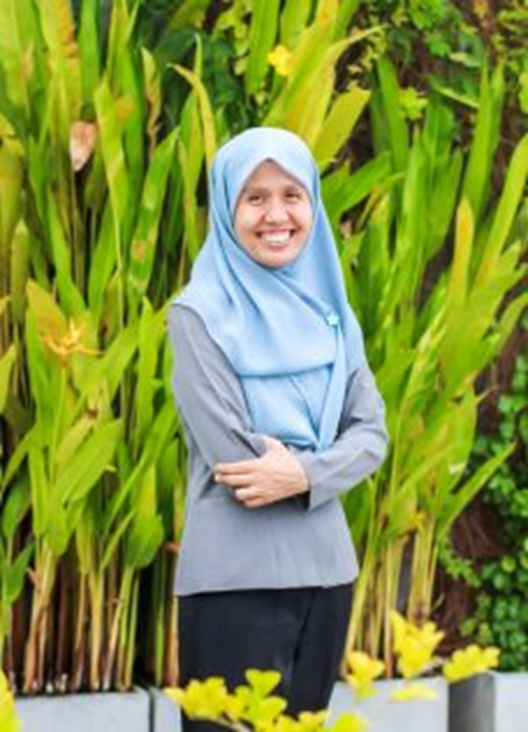
Dr Siriporn Pradit is an Associate Professor at the Marine and Coastal Resources Institute, Coastal Oceanography and Climate Change Research Center, Faculty of Environmental Management, Prince of Songkla University, Thailand. She obtained her PhD from the Vrije Universiteit Brussel, Belgium for Sciences. She spent ten years as a researcher at the Southeast Asian Fishery Development Center in Thailand. She has experience in studying the biogeochemistry of sedimentary organic matter, heavy metal and microplastic in various coastal zones environments such as estuaries, wetland, mangrove and seagrass meadow, as well as lagoon and rivers.
Prof Dr Harunur RASHID
Bangladesh Agricultural University, BANGLADESH
Email: rashid@bau.edu.bd
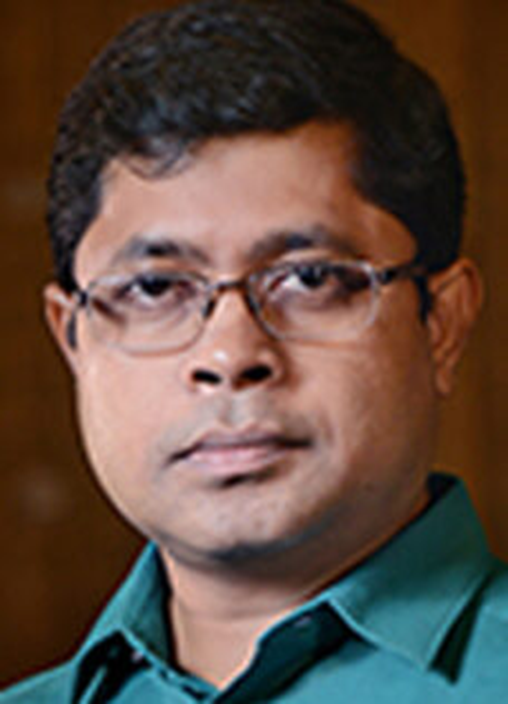
Dr Harunur Rashid is a Professor of Aquatic Ecology affiliated with the Department of Fisheries Management & Interdisciplinary Institute for Food Security at the Bangladesh Agricultural University (BAU), Mymensingh, Bangladesh. Prof. Rashid’s broad research interest is ‘Aquatic Stress Ecology’. Stresses on the aquatic organisms, fish in particular, imposed by pollutants, toxicants and environmental alterations (climate change) are the main area of research interests of Dr Rashid. During recent years Dr Rashid has led research on ‘microplastic pollution in coastal-marine fish & bivalve species from the upper Bay of Bengal off Bangladesh coast’. Find out more about Prof. Rashid’s works, please visit http://harunurrashid.net/publications/.
Assoc Prof Dr Ha Manh Bui
Sai Gon University, VIETNAM
Email: ![]() manhhakg@sgu.edu.vn
manhhakg@sgu.edu.vn
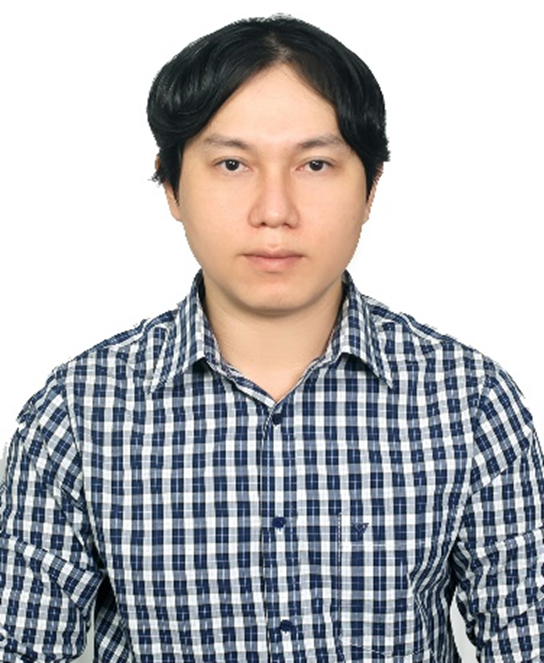
Dr. Ha Manh Bui has been an Associate Professor in the Faculty of Environment at Saigon University. From 2016 to 2023, he served as the Head of the Division of Environmental Engineering Technology at the same institution, concurrently holding the role of Deputy Editor-in-Chief of the Scientific Journal of Saigon University from 2018 to 2023. Before pursuing his academic career, Dr. Bui gained valuable experience in research and development at Asia Company and the Institute for Environment and Resources.
Dr. Bui's research interests lie in water quality, environmental treatment and the circular economy. He focuses on employing innovative technologies such as electron beam, cold plasma and the Fenton reaction. Additionally, he is actively involved in monitoring environmental pollutants including microplastics, trace metals and Endocrine-Disrupting Compounds (EDCs). His research significantly contributes to sustainable development, environmental sciences and organic chemistry.
Dr Xuan Cuong NGUYEN
Duy Tan University, VIETNAM
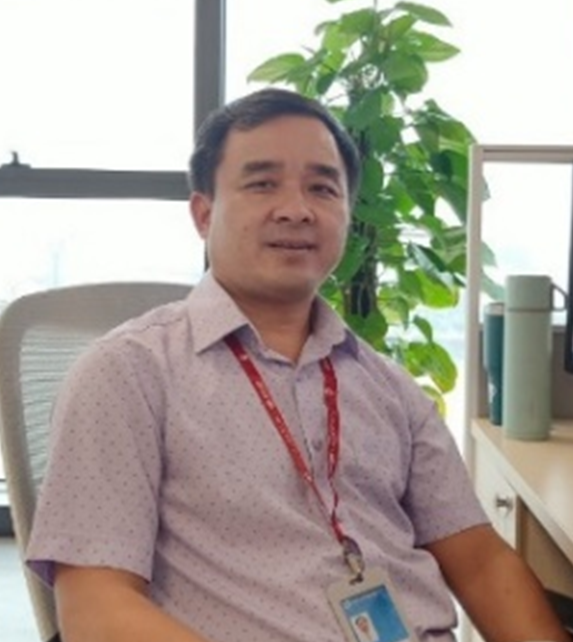
Dr. Nguyen is a Senior Researcher at the Institute of Research and Development and a Lecturer in the Faculty of Environmental Chemical Engineering at Duy Tan University, Vietnam. Previously, Dr. Nguyen held the position of Head of the Faculty of Environmental Engineering Technology at Hue University – Quang Tri Campus. From 2022 to 2023, he served as a Postdoctoral Fellow at the Dissolved Organic Matter Lab in the Department of Environment and Energy at Sejong University, South Korea, where he specialized as a data analysis researcher.
His research interests include the application of natural materials and constructed wetlands in water and wastewater treatment, as well as environmental data analysis and machine learning. Currently, he is dedicated to using advanced statistical and machine learning models to monitor and assess water quality and pollutants in freshwater bodies.
For more information about Dr. Nguyen Xuan Cuong’s professional profile, please visit his ORCID page: https://orcid.org/0000-0002-1953-1456.
3. Lecture Introduction
3.1 Monitoring microplastics in water: sampling, analysis and data treatment
Assoc. Prof. Dr. Siriporn Pradit
Prince of Songkla Unviersity, Thailand
Background: Microplastics, first defined by Thompson et al. (2004), are plastic particles smaller than 5 mm in length. As the population grows and human activities and production activities in the industrial and agricultural sectors increase, plastic waste in rivers or aquatic ecosystems has become an important issue (Pradit et al., 2022). Rivers can be both a source and a sink for waste from surrounding area, such as plastic litter and microplastics (Pradit et al., 2023). Many MPs from urban wastewater end up settling near river mouths and take a long time to make their way downstream to the ocean (Drummond et al., 2022), however microplastic are more concentrated nearshore than the open seas (Zhang et al., 2002). Contamination of the coastal water/ ocean by plastic is a global concern due to its negative effects on marine biota (Pradit et al., 2024).
Content suitable for: Researchers or students who interested in microplastic and have no prior knowledge of microplastics in aquatic ecosystems and coastal ecosystems.
Teaching time: around 2:30-2:45 hours
Objective: 1) To give an overview of plastic and microplastic in the water and coastal environment together with the technology use to study microplastic 2) To give an overview of the study microplastics in river water/coastal areas and in biota (a case study from Thailand).
Teaching method: The instructional and learning activities were designed to achieve training outcomes, focusing on students' comprehension of the principles and applications of microplastic study by using a case study from Thailand. To assess basic knowledge and understanding, students will be given a pre-test and a post-test before and after studying. The lecture contents consist of 1) Self introduction + pretest 2) Overview of plastic and microplastic & Technology of plastic 3) Sampling methods of floating microplastic in the water near shore and : A case study from Thailand 4) Methods of analysis and data treatment of microplastics from the samples and 5) Q&A.
Reference
Drummond, J.D., Schneidewind, U., Li, A., Hoellein, T.J., Krause, S., Packman, A.I. (2022). Microplastic accumulation in riverbed sediment via hyporheic exchange from headwaters to mainstems. Sci. Adv. 8, eabi9305.
Pradit, S., Noppradit, P., Sengloyluan, K., Nitiratsuwan, T., Chuan, O.M., Towatana, P.(2022). Low Occurrence of Microplastic Contamination in Anchovies, a Transboundary Species, in Thai Waters. ScienceAsia 2022, 48, 2–8.
Pradit, S., Noppradit, P., Sengloyluan, K., Suwanno, P., Tanrattanakul, V., Sornplang, K., Nuthammachot, N., Jitkaew, P., Nitiratsuwan, T. (2023). Occurrence of Microplastics in River Water in Southern Thailand. J. Mar. Sci. Eng. 11, 90.
Pradit S, Noppradit P, Sornplang K, Jitkaew P, Kobketthawin T, Nitirutsuwan T and Muenhor D (2024) Microplastics and heavy metals in the sediment of Songkhla Lagoon: distribution and risk assessment. Front. Mar. Sci. 10:1292361
Thompson, R.C., Olsen, Y., Mitchell, R.P., Davis, A., Rowland, S.J., John, A.W.G., McGonigle, D., and Russell, A.E. (2004). Lost at sea: where is all the plastic? Science. 304, 838. doi: 10.1126/science.1094559.
Zhang, J., and Liu, C. L. (2002). Riverine composition and estuarine geochemistry of particulate metals in China—weathering features, anthropogenic impact and chemical fluxes. Estuarine. Estuar. Coast. Shelf. Sci. 54, 1051–1070.
3.2 Ecological risk assessment of microplastics in aquatic systems
Prof. Dr. Harunur RASHID
Department of Fisheries Management, Faculty of Fisheries, Bangladesh Agricultural University, Mymensingh, BANGLADESH
This session will provide an overview of the ecological risk assessment (ERA) of microplastics (MPs) in aquatic systems. This session will cover the impact of MPs from entry points to their trophic transfer within aquatic food chains. Utilizing both theoretical frameworks and practical examples, including methodologies from published and ongoing research by my team on transboundary rivers, critical ecosystems and laboratory studies, this session will facilitate an understanding of the complexities involved in assessing ecological risks posed by MPs.
Key Topics to be Covered:
Sources, types and pathways of MPs into aquatic systems: The session will begin with an introduction to MPs, highlighting their sources, types and pathways into aquatic systems. The global and regional implications of MP pollution will be discussed to set the stage for a deeper exploration of their ecological impacts.
Ecological Risk Assessment Framework: Participants will be introduced to the four key components of ERA - hazard identification, exposure assessment, effects assessment and risk characterization. Each component will be explored in detail, particularly focusing on how they relate to MP pollution.
MP Exposure and Trophic Transfer: Detailed explanations will be provided on how MPs are ingested and transferred through aquatic food webs. The session will include a step-by-step description of laboratory and field studies designed to trace MP movement from zooplankton to higher trophic levels such as planktivore and carnivore aquatic animals. This segment will use data and methodologies from our published research articles and findings of our ongoing research project, that will ultimately illustrate real-world applications of theoretical knowledge.
Risk Assessment Techniques: Methodologies for assessing MP exposure will be discussed, including laboratory experiments that simulate environmental exposure and study its effects on fish health, specifically looking at hemato-biochemical parameters and organ pathology through histology.
Risk Characterization and Mitigation Strategies: The session will culminate in an integrative discussion on synthesizing data from various studies to characterize risks comprehensively. Strategies for mitigating MP pollution, emphasizing regulatory and policy frameworks, will be explored to provide participants with actionable knowledge.
Participatory and Interactive Components: Interactive discussions and Q&A segments will be integrated throughout the session to engage participants actively. These interactions will encourage the application of theoretical knowledge in practical scenarios and facilitate a deeper understanding of the subject matter.
It is expected that this training session will help equip participants with the necessary tools and knowledge to assess and address the ecological impacts of MPs in aquatic systems. Through a blend of lecture, case studies and interactive discussions, participants will gain insights into both the scientific and regulatory aspects of ecological risk assessment of MPs pollution in aquatic environments.
3.3 Some techniques for reducing plastic focus on using an electron beam
Assoc Prof. BUI Manh Ha
Sai Gon University, VIETNAM
Background: Plastic production and usage have surged globally, reaching around 400 million tonnes annually (Almohana et al., 2022). Despite their essential role in modern life, plastics generate significant waste due to their short lifecycles. Poor waste management exacerbates this issue, causing plastic waste to accumulate in landfills and water systems, posing severe threats to biodiversity, food safety, and human health (Gorbarev et al., 2019). Recycling plastic waste is challenging because most plastic waste is mixed, contaminated, or partially degraded, making it difficult to recycle (Guo et al., 2023; Singh et al., 2017). Complex products like multi-layer packaging resist conventional recycling methods, and certain plastics can produce toxic by-products during pyrolytic recycling. Electron beam technology (Bui et al., 2021) offers a promising solution by inducing specific chemical reactions within plastics, enhancing their properties or breaking them down into more manageable forms. This method can efficiently process mixed and contaminated plastic waste, converting it into valuable products. Thermal methods involving controlled heating can complement these processes by breaking down complex plastic structures (Nguyen et al., 2023).
Content suitable for: Researchers or students interested in recycled plastic using electron beam techniques with no prior experience.
Teaching time: around 2:30-2:45 hours
Lecture Focus:
This lecture will explore plastic recycling using electron beam method, examining current advancements, practical applications, and future prospects. By leveraging these technologies, significant strides can be made towards a sustainable and circular economy for plastics.
Teaching method: The instructional and learning activities are designed to achieve training outcomes focusing on students' comprehension of the principles and applications of plastic recycling technologies.
Lecture Content:
1. Self-Introduction
2. Overview of Recycled Plastic Technology
3. Electron beam techniques
4. Practical cases
5. Q&A Session
Reference
Almohana, Abdulaziz Ibrahim, Mohanad Yaseen Abdulwahid, Isaac Galobardes, Jasir Mushtaq, and Sattam Fahad Almojil. "Producing sustainable concrete with plastic waste: A review." Environmental Challenges 9 (2022): 100626.
Bui, Ha Manh, Duy Ngoc Nguyen, Xuan Thanh Bui, and Hien Quoc Nguyen. "Trends in using electron beam for treating textile and dyeing wastewater." Sustainable Resource Management, Volume II: Technologies for Recovery and Reuse of Energy and Waste Materials 2 (2021): 525-557.
Gorbarev, I. N., S. I. Vlasov, V. N. Chulkov, A. V. Bludenko, and A. V. Ponomarev. "Degradation of plastics via electron-beam distillation." Radiation Physics and Chemistry 158 (2019): 64-67.
Guo, Yong-Chang, Xie-Mi Li, Jie Zhang, and Jia-Xiang Lin. "A review on the influence of recycled plastic aggregate on the engineering properties of concrete." Journal of Building Engineering (2023): 107787.
Nguyen, Hieu Trung, and Ha Manh Bui. "Bandgap tuning of TiO2 by Cu nanoparticles applied in photocatalytic antifouling-coated PES membranes through PAA-plasma grafted adhesive layer." Water Science & Technology 87, no. 9 (2023): 2390-2405.
Singh, Narinder, David Hui, Rupinder Singh, I. P. S. Ahuja, Luciano Feo, and Fernando Fraternali. "Recycling of plastic solid waste: A state of art review and future applications." Composites Part B: Engineering 115 (2017): 409-422.
3.4 Modelling and machine learning in microplastic pollution research
Dr. Xuan Cuong NGUYEN
Duy Tan University, VIETNAM
The accelerated release of microplastics (MPs) into ecosystems necessitates advanced research methods to assess their behavior, quantity, impact, and transport. As MP research evolves rapidly, generating extensive data on their composition, shapes, distribution, and effects, the adoption of robust methodologies becomes crucial. Machine learning (ML) and numerical modeling are at the forefront of analyzing and predicting MP behavior, particularly in soil and water contexts. These tools not only streamline the identification process but also provide critical insights into MP transport dynamics in marine environments, aiding in the pinpointing of accumulation zones crucial for pollution management and policy-making.
This lecture series present ML and numerical modeling in MP research, focusing on practical applications for predicting and assessing MP pollution and transport. The series is structured as follows:
Part 1: Machine Learning for MP Research
- Data Sources and Preprocessing: Overview of MP data sources and the preprocessing techniques essential for ML applications.
- ML Algorithms: Presenting ML algorithms, their structures, and application scenarios in MP research.
- Applications of ML: Case studies showcasing the use of ML in identifying and predicting MP pollution.
Part 2: Modeling MP Transport in Marine Environments
- Influential Factors: Summarization of key environmental, physical factors affecting MP transport; data sources and the preprocessing techniques
- Modeling Approaches: Overview of Lagrangian and Eulerian methods used in MP transport modeling.
- Simulation of MP Fate and Transport: Exploration of how numerical models simulate MP transport and fate, including quantification methods for MP sources.
References:
Machine learning
https://doi.org/10.1016/j.jwpe.2024.105150
https://doi.org/10.1016/j.jhazmat.2024.134188
https://www.nature.com/articles/s41598-024-54003-1
https://doi.org/10.1021/acs.analchem.2c02451
https://doi.org/10.1016/j.envpol.2023.122833
https://doi.org/10.1021/acsestwater.3c00386
https://doi.org/10.1016/j.jhazmat.2023.132565
4. List of participants
| No | Full name | Address contacts |
| 1 | Thi Thu BUI | Hanoi University of Natural Resource and Environment, VIETNAM |
| 2 | Thi Hien DO | Hanoi University of Natural Resource and Environment, VIETNAM |
| 3 | Kim Yen TRINH | Hanoi University of Natural Resource and Environment, VIETNAM |
| 4 | Thi Tham TRINH | Hanoi University of Natural Resource and Environment, VIETNAM |
| 5 | Thi Thuy TRINH | Hanoi University of Natural Resource and Environment, VIETNAM |
| 6 | Thi Oanh DOAN | Hanoi University of Natural Resource and Environment, VIETNAM |
| 7 | Thi Nhat Le BUI | Center for High Technology Research and Development, VIETNAM. |
| 8 | Hai Nhi LUU | Center for High Technology Research and Development, VIETNAM. |
| 9 | Thi Thu Minh NGUYEN | Center for High Technology Research and Development, VIETNAM. |
| 10 | Thu Uyen NGUYEN | Center for High Technology Research and Development, VIETNAM. |
| 11 | Nguyen Nhat Linh PHAN | Center for High Technology Research and Development, VIETNAM. |
| 12 | Nguyen Hoang Le PHAM | Center for High Technology Research and Development, VIETNAM. |
| 13 | Minh Duc DAO | Center for High Technology Research and Development, VIETNAM. |
| 14 | Thuy Duong HOANG | Center for High Technology Research and Development, VIETNAM. |
| 15 | Viet Thang NGUYEN | Vietnam National University of Agriculture, VIETNAM |
| 16 | Phuong Thao NGUYEN | Vietnam National University-Hanoi, VIETNAM. |
| 17 | Duc Hieu NGUYEN | Vietnam National University-Hanoi, VIETNAM. |
| 18 | Linh Trang NGUYEN | Vietnam National University-Hanoi, VIETNAM. |
| 19 | Thi Thao Nguyen NGUYEN | Vietnam National University-Hanoi, VIETNAM. |
| 20 | Thi Thu Trang TRAN | Vietnam National University-Hanoi, VIETNAM. |
| 21 | Yen Nhi DO | Vietnam National University-Hanoi, VIETNAM. |
| 22 | Mrs Neeracha PANNAK | King Mongkut’s University of Technology Thonburi, Bangkok, THAILAND. |
| 23 | Chaiwat EKKAWATPANIT | King Mongkut’s University of Technology Thonburi, Bangkok, THAILAND. |
| 24 | Prof Dr Zhaoyong BIAN | College of Water Sciences, Beijing Normal University, Beijing, CHINA |
| 25 | Dr Bobing LU | College of Water Sciences, Beijing Normal University, Beijing, CHINA |
| 26 | Thi Xuan Thinh NGO | Phu Tho College of Medicine and Pharmacy, VIETNAM |
| 27 | Thi Minh Diep NGUYEN | Phu Tho College of Medicine and Pharmacy, VIETNAM |
| 28 | Thanh Nghi DUONG | Institute of Marine Environment and Resources, Hai Phong, VIETNAM |
| 29 | Hai Ngoc DINH | Institute of Marine Environment and Resources, Hai Phong, VIETNAM |
| 30 | Thi Ngoc Phuong DANG | Institute of Natural Product Chemistry, VAST, Hanoi, VIETNAM. |
| 31 | Hoai Linh NGUYEN | Institute of Natural Product Chemistry, VAST, Hanoi, VIETNAM. |
| 32 | Thi Thu Ha HOANG | Institute of Natural Product Chemistry, VAST, Hanoi, VIETNAM |
| 33 | Thi Mai Huong NGUYEN | Institute of Natural Product Chemistry, VAST, Hanoi, VIETNAM |
| 34 | Nhu Da LE | Institute of Natural Product Chemistry, VAST, Hanoi, VIETNAM |
| 35 | Hoang Anh DINH | University of Science, VNU Hanoi, VIETNAM |
| 36 | Van Hoang NGUYEN | Hanoi University of Industry, VIETNAM |
| 37 | Minh Quan PHAM | Hanoi University of Industry, VIETNAM |
| 38 | Thi Thanh Huyen DINH | Hanoi National University of Education, VIETNAM. |
| 39 | Thi Quynh HOANG | Institute of Science and Technology for Energy and Environment, VAST, Hanoi, VIETNAM |
| 40 | Phuong Thao PHAM | Institute of Science and Technology for Energy and Environment, VAST, Hanoi, VIETNAM |
| 41 | Thi My NGUYEN | Institute of Science and Technology for Energy and Environment, VAST, Hanoi, VIETNAM |
| 42 | Thi Anh Nguyet NGUYEN | Institute of Science and Technology for Energy and Environment, VAST, Hanoi, VIETNAM |
| 43 | Hoang Vu Trung Kien | Institute of Science and Technology for Energy and Environment, VAST, Hanoi, VIETNAM |
| 44 | Thi Minh Hoa NGUYEN | National Institute of For Food Control, VIETNAM |
5. Some quotes
Quote “Sincerely Thanks” from learners/participants of the training course titled “Microplastic pollution in water: monitoring, modeling and ecological risk assessment” which was held on 15th-16th July 2024 at INPC, Hanoi:
“On behalf of all participants, first of all, I would like to express my gratitude to Assoc Prof Dr. Pham Thi Hong Minh, the Director of the INPC, VAST, Vietnam, and Assoc Prof Dr. Le Thi Phuong Quynh for creating such a great opportunity to participate in this training course which can help me and other participants to widen our horizon and enrich our knowledge regarding microplastics and how to mitigate the impact of microplastics on not only human health but also the environment and ecosystem. Secondly, I wanted to express my heartfelt gratitude for the outstanding presentations. Assoc Professor PRADIT, your talk on "Monitoring Microplastics in Water: sampling, Analysis, and Data Treatment" was incredibly insightful and provided a comprehensive understanding of the complexities involved in microplastic monitoring and treatment. Your expertise and detailed explanations have greatly enhanced my appreciation for the subject. Moreover, Professor RASHID, your presentation on "Ecological Risk Assessment of Microplastics in Aquatic Systems" was equally impressive. Your approach to assessing ecological risks and the implications for aquatic environments was both enlightening and thought-provoking. The clarity with which you conveyed these critical issues was truly commendable. Moreover, I would like to extend my heartfelt thanks for your outstanding presentations. Then Associate Professor BUI, your talk on techniques for reducing plastic, particularly using electron beams, was both innovative and informative. Your insights into this cutting-edge method were truly enlightening. And finally, Dr. NGUYEN, your presentation on "Modelling and Machine Learning in Microplastic Pollution Research" was equally impressive. Your application of these advanced techniques to tackle microplastic pollution provided valuable perspectives and demonstrated the power of technology in addressing environmental challenges. Thank you all for sharing your expertise and contributing to a greater understanding of these important topics. Your work is greatly appreciated and has inspired me and other participants to delve deeper into these fields” – Dr DAO Minh Duc, and BSc NGUYEN Thu Uyen, young scientists of Center for High Technology Research and Development, Vietnam Academy of Science and Technology, Vietnam.
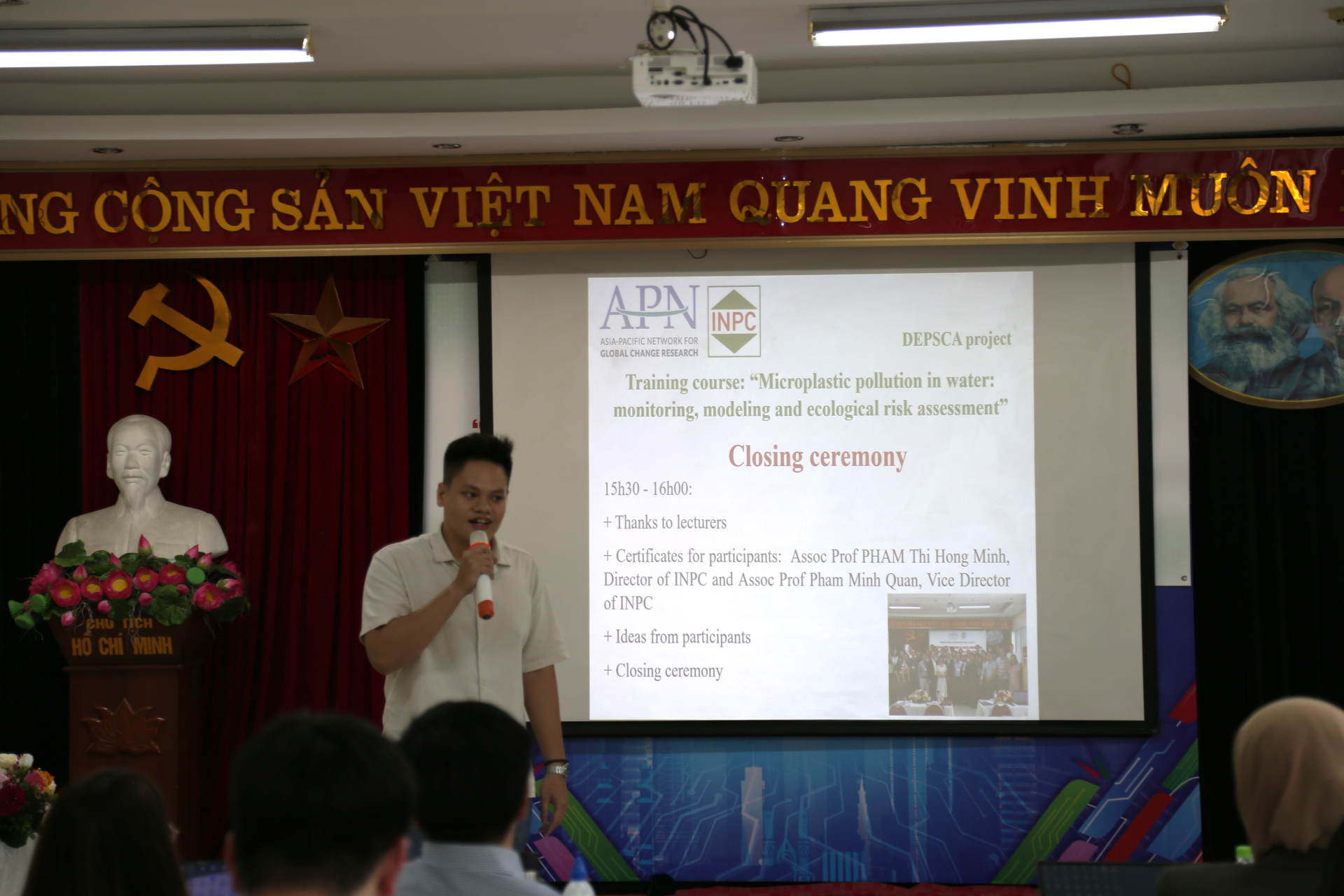
DAO Minh Duc, young scientists of Center for High Technology Research and Development, Vietnam Academy of Science and Technology, Vietnam
“Dear professors, on behalf of everyone in the class, I wanted to thank you for your insightful lecture on microplastics. Your presentation was very informative and has greatly increased my understanding of the topic. Considering that this is a relatively new area of research, your insights were particularly valuable and have given me a lot to think about. I appreciate your dedication in preparing and delivering such a comprehensive talk. Thank you very much.” – Ms Neeracha PANNAK from King Mongkut's University of Technology Thonburi, Thailand.
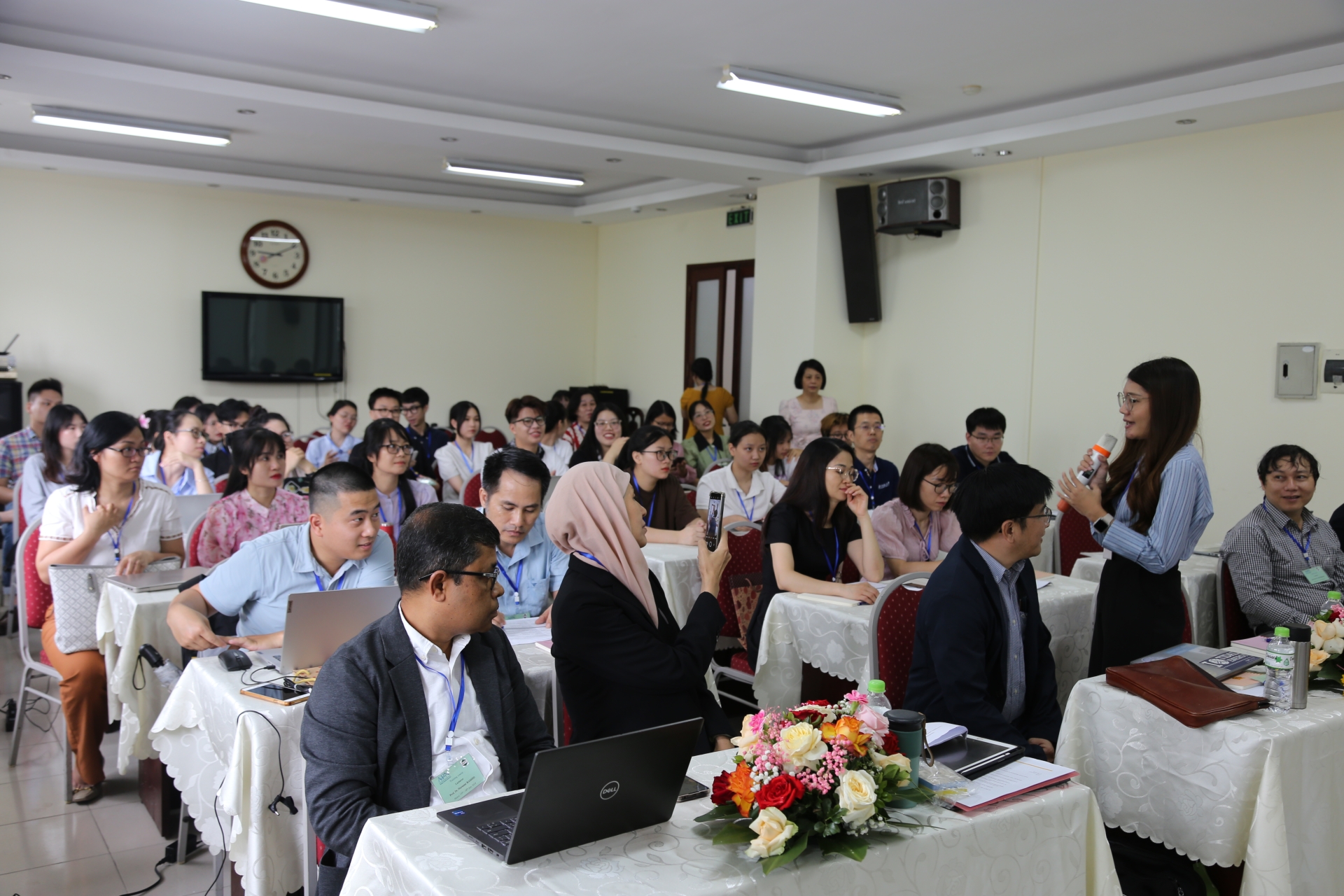 Neeracha PANNAK from King Mongkut's University of Technology Thonburi, Thailand
Neeracha PANNAK from King Mongkut's University of Technology Thonburi, Thailand
“I would like to express my heartfelt gratitude for your learning experience in the "Microplastic pollution in water: monitoring, modeling and ecological risk assessment" course. Each portion of the course was designed with meaningful insights and practical applications, which I found incredibly valuable. Thank you once again for your dedication to teaching and for being a source of inspiration in the field of environment in general and microplastics in particular. I am enthusiastic to implement the crucial insights acquired during the course in my future academic pursuits and employment.” – Dr DOAN Thi Oanh, a young lecturer of Faculty of Environment, Hanoi University of Natural Resources and Environment (HUNRE, MONRE), Vietnam.
"I would like to express my sincere gratitude to Prof. Pradit, Prof. Rashid, Prof. Ha and Prof Cuong for their enlightening lectures. They provided the most updated knowledge and information on the status of microplastics, their environmental hazards, analysis methods, and treatment technologies.
A special thank to the organization committees of the training course and provide me the chance to participate. It was a valuable opportunity to learn from both international and national experts on microplastic analysis and to share our initial research. Finally, thank you very much. I wish everyone good health and happiness and continued success". - Dr Dang Ngoc Phuong, from INPC, VAST, Vietnam.
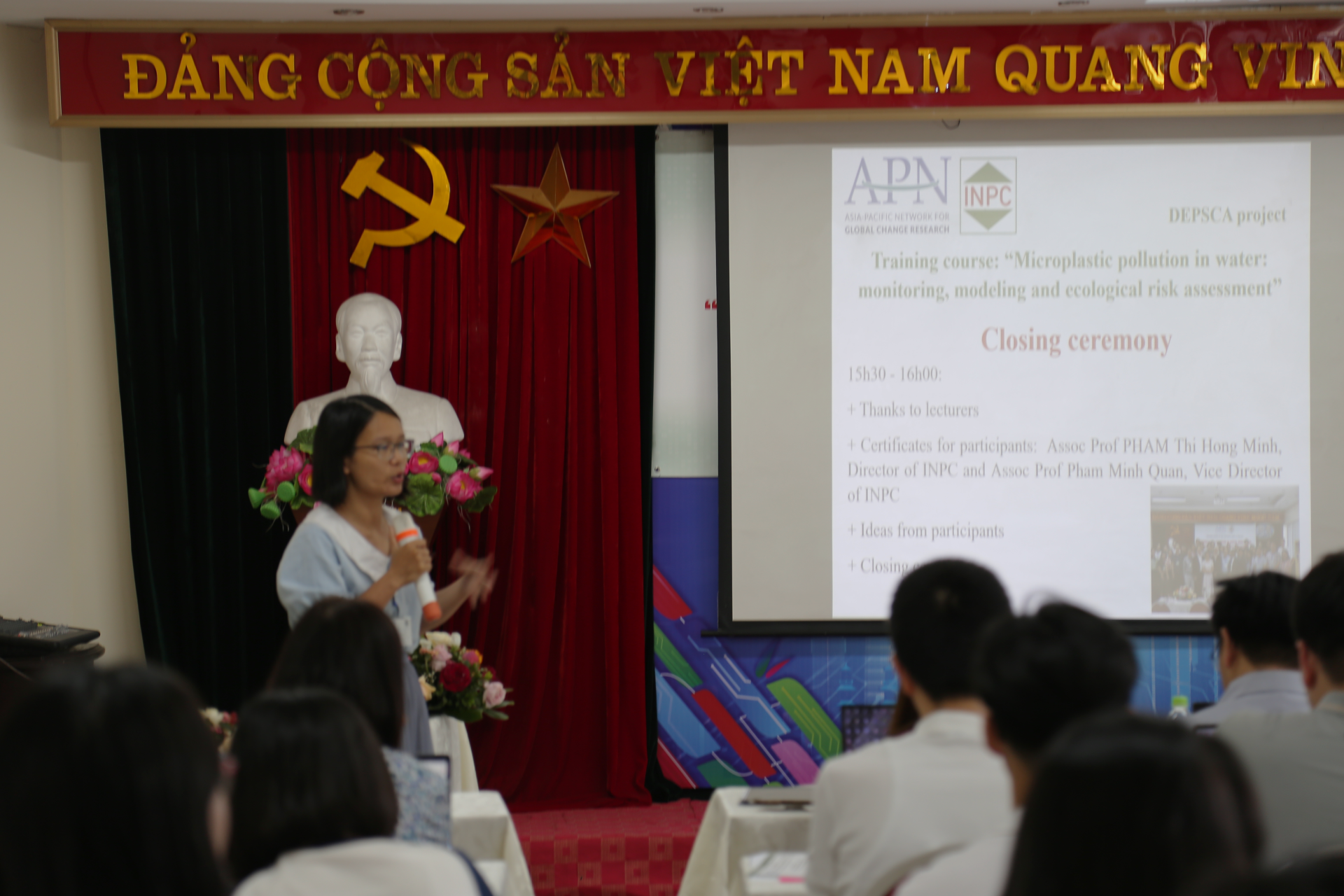
Dang Ngoc Phuong, from INPC, VAST, Vietnam


